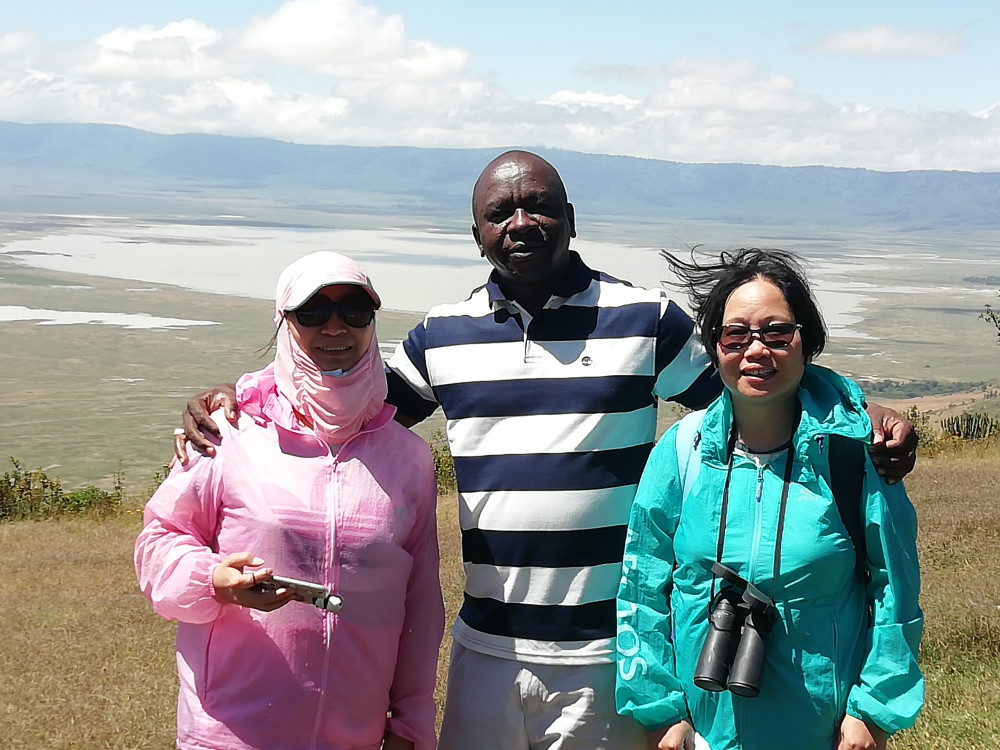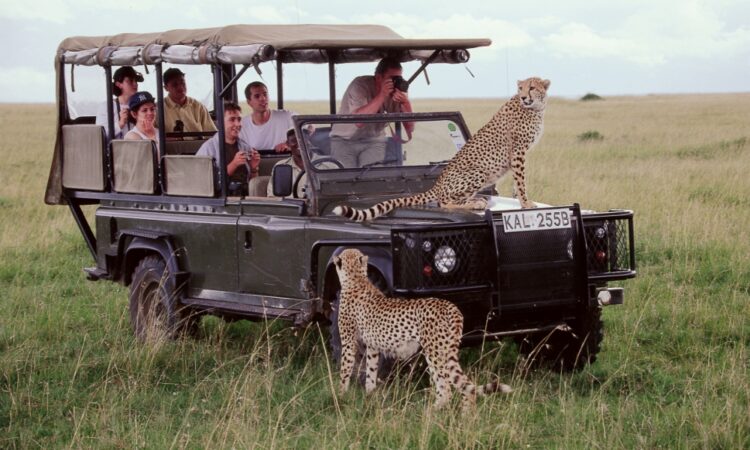While traveling in Mombasa, Kenya, being aware of safety and security aspects is essential for an enjoyable and stress-free journey. Keep in mind these key points:
1. General Safety
Keep yourself informed. Keep up with local news as well any travel information from the country you are visiting.
Sign up at the Embassy of your choice.
2. Health-related precautions
Vaccinations. Be sure you have the latest routine vaccinations.
Mombasa's malaria is an endemic. Utilize antimalarial medication and insect repellents. Wear long sleeves in the evening and sleep in mosquito nets.
Food safety and water Beware of eating ice, and drink boiling or bottled water. Consume food cooked well. Be cautious with street food.
3. Personal Security
Avoid walking around alone at night Make sure you stay in well-lit and populated areas. Avoid walking on beaches or in secluded areas after the darkness.
Hotel safes are a fantastic option to store valuables such as passports and cash. Avoid displaying costly items such as electronics or jewelry.
Choose Reliable Transport: Use certified taxis, ride hailing service or transport arranged by your Hotel. Avoid unmarked cabs.
4. Local Laws and Customs
Respect local culture Dress modestly, particularly when visiting religious sites. Be aware of local customs and traditions.
Drug Laws: Kenya has strict drug laws that have severe penalties. Avoid involvement with illegal drug use.
Request permission prior to taking photos of people living in rural areas, military or government buildings.
5. Beach Safety and Water Safety
Be safe when swimming. Listen to local information about currents, conditions and swimming. Be sure to use designated swimming areas.
Marine Wildlife: Be mindful of marine animals such as sea urchins and jellyfish. Walking along the beach requires footwear that is suitable.
6. Crime Prevention
Petty crime: In busy areas, bag-snatching or pickpocketing could be a possibility. Keep your belongings close and stay vigilant.
Scams - Beware of strangers who seem to provide too much help or offers that appear too good to be true. Use licensed tour agents.
Emergency Contacts - Be aware of your local emergency numbers (999) and include the Fire Department (999), and the Ambulance Service (999). You should always have the contact details of your country’s embassy and consulate in mind.
7. Natural Hazards
Weather: Mombasa experiences a tropical climate. The possibility of heavy rainfall and flooding can occur, particularly in the rainy season. Weather forecasts are important.
Sun protection: Apply sunscreen, wear hats and stay hydrated to avoid sunburn and heat exhaustion.
8. Travel Insurance
Travel Insurance with Comprehensive Coverage Make sure you have comprehensive travel insurance to cover medical emergencies, thefts or losses, as well as disruptions of travel. Verify your policy covers activities such as watersports.
If you keep these security and safety considerations in mind, you will be able to better enjoy your trip to Mombasa without worry. See the top rated Kenya safaris for more recommendations including kenya tours and travel, trip tour companies, mombasa tour companies, kenya safaris and tours, africa safaris and tours, mombasa travel agency, trips to kenya, mombasa travel agency, kenya safari tours, trips to kenya and more.

What Cultural Considerations Should Be Considered Prior To An Event In Mombasa?
Being sensitive to culture when visiting Mombasa in Kenya is essential for ensuring that you have pleasant experience and respect the locals. Here are some considerations to take into consideration:
1. Dress according to local dress codes
Mombasa's Muslim population is large. It is considered polite to dress modestly when visiting public spaces, religious sites, or neighborhood areas. This means that you should be sure to cover your shoulders, chest as well as your knees and legs.
Wearing beachwear. While it's acceptable to wear swimwear on the beach however, it is recommended to cover your skin when you leave the beach area and go to nearby eateries or shops.
2. Religious Sensitivity
Visiting mosques. Ask for permission to enter the mosque before and dress in a conservative manner. Women should cover their heads and all visitors should remove their footwear before entering.
Prayer Times: Always be mindful of the five times for prayer every day and show respect especially when you're close to the mosque of a Muslim.
3. Photography Etiquette
Permission: Before taking pictures of anyone, make sure you get their consent. This is especially important in rural areas or places that have traditional values. Some people may feel uncomfortable or feel it's too intrusive.
Restricted Areas Avoid taking photographs of places that are sensitive, like military bases as well as government structures and certain cultural areas that prohibit photography.
4. Social Interactions
It's important to greet others politely. In Swahili one of the most popular greetings is "Jambo". It's common to handshake, but it's more respectful for Muslim women to hold their hands until they are extended, or simply greet them verbally.
Personal Space: Remember the need to respect personal space.
5. Cultural Norms & Taboos
Public Displays of Affection: Avoid public displays of affection, as they are generally frowned upon.
The Left Hand is not utilized. Use your right hands for eating and greeting people, as well as exchanging goods and money.
Feet: exposing the soles of your shoes or the point of your feet towards people is considered to be disrespectful.
6. Language and Communication
Basic Swahili. Knowing some Swahili words and phrases can help you establish relationships with locals. The most popular Swahili phrases include "Asante", which means "thank you", and "Habari" meaning "How do you feel?" ).
Politeness: Be patient and politeness in your communications. Kenyans are looking for respectful and courteous communication.
7. Respect Local Customs
Traditional Practices: Respect the customs and rituals of the past. Follow your host's instructions if you're invited to a local event.
Bargaining is commonplace in local shops and markets. However, it should be done with respect and humour. It's more of an art than a confrontation.
8. Alcohol and Smoking
Alcohol is available, but it is recommended to consume it discreetly in areas where Muslims are the predominant religion. Avoid public drunkenness.
Smoking: Smoking is generally not allowed in public places. Smoking zones are often designated.
9. Environmental Respect
Littering Avoid littering. Be sure to get rid of your trash properly. Take care of nature and wildlife.
Conservation: Pay attention to local wildlife, habitats and conservation efforts. Avoid buying products made of endangered species.
10. Assisting Local Communities
Local Businesses: Help local markets, businesses and artisans to support the local economy.
Responsible Tourism: Engage in responsible tourism by selecting eco-friendly and community-based tourism options which benefit the local community.
By considering these cultural sensitivity guidelines, you will experience a more meaningful, and respectful experience in Mombasa by increasing your knowledge and appreciation of the culture of Mombasa. Check out the top mombasa old town for blog recommendations including africa in kenya, safaris beach, tour agents in kenya, african safari excursions, kenya africa travel, tour mombasa, tour firms in kenya, tours & safaris, kenya safari packages, safaris beach and more.

What Safari And Tour Planning Do I Need To Be Aware Of Before I Travel To Mombasa Kenya?
When planning a tour or safari trip in Mombasa Kenya it is important to consider all the factors that will make your trip unforgettable. Here are some key tips to be aware of:
1. Select an Safari Tour Operator
Reputation: Select a tour company with a solid reputation. Find tour operators that are accredited by the Kenya Association of Tour Operators (KATO).
Review the various packages offered by various tour operators. Packages can range from low-cost to high-end and differ in terms of duration, accommodation, and included activities.
Guides. Be sure that the operator employs an experienced and well-trained guides, preferable certified by relevant organizations.
2. Most sought-after Safari Destinations from Mombasa
Tsavo: Tsavo West is one of Kenya's largest game reserves. Tsavo West is split into two parts: Tsavo West East. It is well-known for its diverse wildlife which includes elephants, lions and rhinos.
Amboseli National Park has a large elephant population and breathtaking views to Mount Kilimanjaro.
Shimba Hills National Reserve is close to Mombasa and provides stunning scenery and also the chance to observe rare species such as the Sable Antelope.
Maasai Mara - Although it is farther away from Mombasa than Mombasa itself, the Maasai Mara region is renowned for the Great Migration.
3. Safaris and Tours are available in a variety of kinds.
Game Drives. Traditional safaris typically include 4x4 game drives that offer up-close encounters with wildlife.
Walking safaris: A walking safari is a great method to explore the forest while also learning about the smaller species of flora.
Balloon Safaris: Available in some parks, including the Maasai Mara, offering the bird's-eye perspective of the wildlife.
Beach and Bush Combos: Combine a safari and a time at the gorgeous beaches of Mombasa to have a variety of experiences.
Cultural Tours: This tour includes visits of local villages or historical sites such as Fort Jesus, Mombasa Old Town and Fort Jesus.
4. Timing and Duration
Best Time to Visit: Wildlife viewing is best during the dry season, from June to October. Animals gather around water sources. The Great Migration occurs in the Maasai between July and October.
Duration: Safaris may be a day trip to a week-long adventure. Consider your timetable and the amount of time you would like to spend in the wilderness.
5. What to Pack
Clothing Light comfortable, breathable clothing that is neutral colors. Include the long sleeves as well as pants to provide nighttime protection from mosquitoes.
Shoes: For walks, comfortable walking shoes or boots is essential.
Accessories: Don't forget to bring a wide-brimmed sun hat, sunglasses that provide UV protection, insect repellent, and sunscreen.
Gear: Binoculars and a good camera with extra memory cards and batteries are essential for wildlife viewing and photography.
Carry all necessary medications. Take into consideration bringing antimalarial medicine and a basic first aid kit, as well as any other personal medications.
6. Health and Safety
Check for vaccinations and ensure you are up-to-date on your recommended vaccinations.
Malaria Prevention: Use insect repellent Wear long-sleeved garments in the evening and think about anti-malarial drugs.
Food safety and water Drink filtered, bottled water or buy it from a reliable restaurant.
7. Costs of Payments
Set your budget in advance. Safaris are expensive. Look into all-inclusive vacation packages that include meals, accommodation and activities.
The majority of operators accept bank transfers as well as credit cards. Check the payment options and any deposit requirements.
8. Environmental and Ethical Besorgnization
Eco-friendly Operators: Select companies that are committed to implementing sustainable practices.
Wildlife Protection: Protect wildlife by keeping a safe distance from animals and not causing disturbance. Beware of buying products made from endangered species.
9. Travel Insurance
Coverage: Make sure your travel insurance plan is covered by the medical emergency or safari activities as well as disruptions to travel.
10. Booking and Confirmation
Safaris are popular and are booked up quickly, especially in peak season. Make reservations early.
Confirmation: Confirm all details with your tour operator, including pickup times, itinerary, and contact information.
By considering these aspects, you can plan a well-organized and enjoyable safari or tour experience starting from Mombasa and enhance your time in Kenya. View the recommended Airport transfer to Mombasa for more tips including africa safaris and tours, mombasa travel agency, kenya mombasa holiday packages, kenya safaris, africa tours and safaris, mombasa tour packages, tour agents in kenya, kenya tours, mombasa packages, tour firms in kenya and more.
